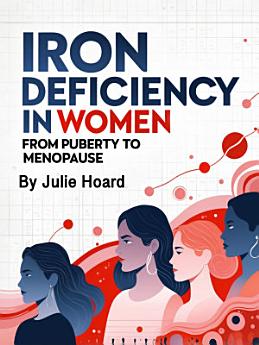Iron Deficiency in Women: From Puberty to Menopause
About this ebook
The importance of iron begins with its role in hemoglobin, the protein in red blood cells that carries oxygen from the lungs to every part of the body. Without adequate iron, the body cannot produce enough healthy red blood cells, leading to iron deficiency anemia—a condition that often manifests through fatigue, weakness, and shortness of breath. In women, this condition is not uncommon due to monthly menstrual blood loss and increased nutritional demands during different life stages.
Iron metabolism is a finely tuned system. The body carefully regulates how much iron it absorbs, stores, and uses. Most of the body's iron is recycled from old red blood cells, while the rest is absorbed from the diet. This process involves specialized proteins and organs, including the intestines, liver, and bone marrow. When iron stores drop too low or absorption is impaired, deficiency can develop gradually and silently.







